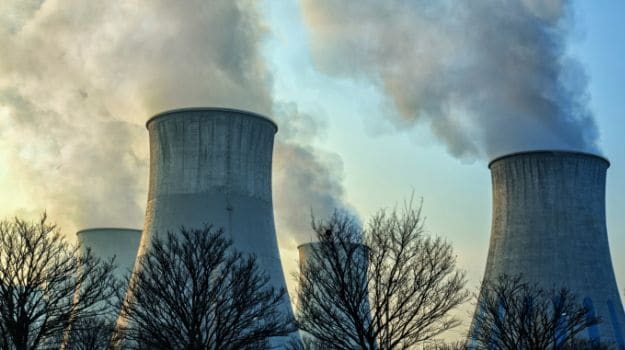More than 5.5 million people worldwide die prematurely every year due to household and outdoor air pollution, and India and China together account for 55 percent of these deaths, new research has found.About 1.6 million people died of air pollution in China and 1.4 million died in India in 2013, the researchers said. The international team of researchers from India, China, Canada and the US estimated that despite efforts to limit future emissions, the number of premature deaths linked to air pollution will climb over the next two decades unless more aggressive targets are set.The findings were presented on Friday at the 2016 annual meeting of the American Association for the Advancement of Science (AAAS) in Washington, DC.
"Air pollution is the fourth highest risk factor for death globally and by far the leading environmental risk factor for disease," said Michael Brauer, professor at University of British Columbia's School of Population and Public Health in Vancouver, Canada."Reducing air pollution is an incredibly efficient way to improve the health of a population," Brauer noted.Power plants, industrial manufacturing, vehicle exhaust and burning coal and wood all release small particles into the air that are dangerous to a person's health. In India, a major contributor to poor air quality is the practice of burning wood, dung and similar sources of biomass for cooking and heating.Millions of families, among the poorest in India, are regularly exposed to high levels of particulate matter in their own homes."India needs a three-pronged mitigation approach to address industrial coal burning, open burning for agriculture, and household air pollution sources," Chandra Venkataraman, professor at Indian Institute of Technology Bombay, in Mumbai, India, said.In China, burning coal is the biggest contributor to poor air quality. Outdoor air pollution from coal alone caused an estimated 366,000 deaths in China in 2013, Qiao Ma, a doctoral student at Tsinghua University in Beijing, China, noted.Ma also calculated the expected number of premature deaths in China in the future if the country meets its current targets to restrict coal combustion and emissions through a combination of energy policies and pollution controls.She found that air pollution will cause anywhere from 990,000 to 1.3 million premature deaths in 2030 unless even more ambitious targets are introduced."Our study highlights the urgent need for even more aggressive strategies to reduce emissions from coal and from other sectors," Ma said.(This story has not been edited by NDTV staff and is auto-generated from a syndicated feed.)
"Air pollution is the fourth highest risk factor for death globally and by far the leading environmental risk factor for disease," said Michael Brauer, professor at University of British Columbia's School of Population and Public Health in Vancouver, Canada."Reducing air pollution is an incredibly efficient way to improve the health of a population," Brauer noted.Power plants, industrial manufacturing, vehicle exhaust and burning coal and wood all release small particles into the air that are dangerous to a person's health. In India, a major contributor to poor air quality is the practice of burning wood, dung and similar sources of biomass for cooking and heating.Millions of families, among the poorest in India, are regularly exposed to high levels of particulate matter in their own homes."India needs a three-pronged mitigation approach to address industrial coal burning, open burning for agriculture, and household air pollution sources," Chandra Venkataraman, professor at Indian Institute of Technology Bombay, in Mumbai, India, said.In China, burning coal is the biggest contributor to poor air quality. Outdoor air pollution from coal alone caused an estimated 366,000 deaths in China in 2013, Qiao Ma, a doctoral student at Tsinghua University in Beijing, China, noted.Ma also calculated the expected number of premature deaths in China in the future if the country meets its current targets to restrict coal combustion and emissions through a combination of energy policies and pollution controls.She found that air pollution will cause anywhere from 990,000 to 1.3 million premature deaths in 2030 unless even more ambitious targets are introduced."Our study highlights the urgent need for even more aggressive strategies to reduce emissions from coal and from other sectors," Ma said.(This story has not been edited by NDTV staff and is auto-generated from a syndicated feed.)
Advertisement








